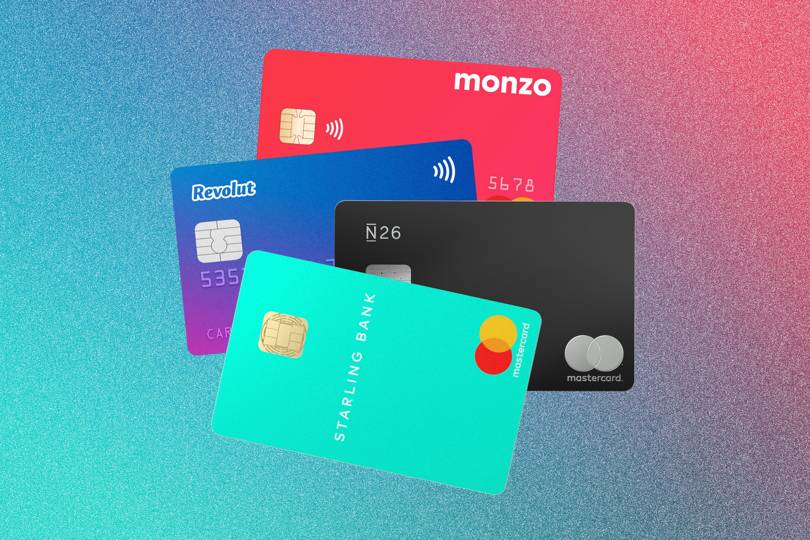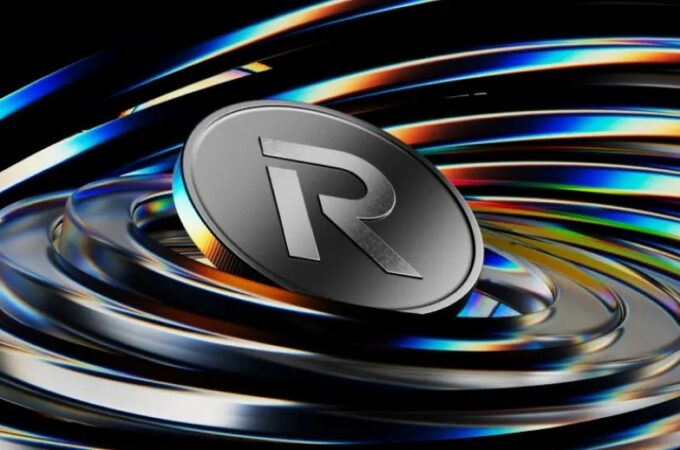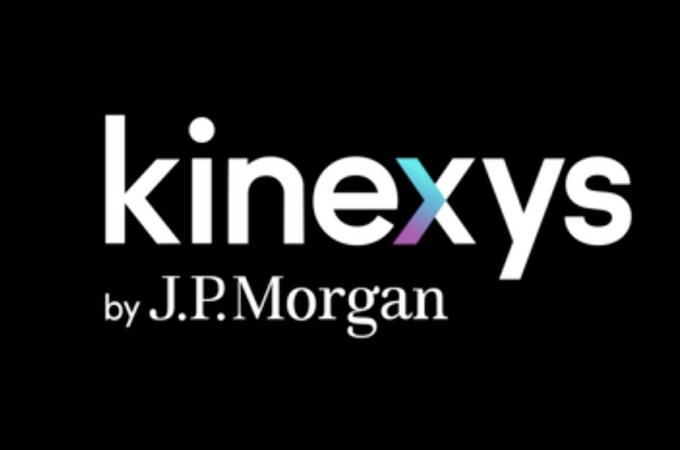
Which challenger bank is best for you? We compare Monzo, Revolut, Starling and N26
via Wired.co.uk
Which challenger bank is best for you depends on your own needs, and some people may be better off staying with a legacy provider. Wired.co.uk have reviewed a quartet of the top challenger apps – Monzo, N26, Starling and Revolut – and identified the best challenger bank for each of the following use cases: for travelling, for expats or people with families abroad, for developers and creatives, for business, for rich people, and for the rest.
Filling out reams of paperwork, waiting for cards and PINs in the mail, queuing for hours in branches, and never being quite sure whether a payment has gone out of your account – banking used to be the worst.
Now, thanks to so-called ‘challenger banks’ such as Monzo, N26, Starling and Revolut, banking apps let us freeze cards, manage budgets with analytics, and get instant notifications of our spending. The old guard’s apps have improved too, as they have started to borrow the best ideas from their smaller rivals.
Part of the problem faced by challenger banks is convincing people to make the switch before high-street banks close the gap. Which challenger bank is best for you depends on your own needs, and some people may be better off staying with a legacy provider.
We recommend taking the time to investigate which is best for you – it’s worth the effort as there are real savings and other benefits to be had. We have reviewed a quartet of the top challenger apps – Monzo, N26, Starling and Revolut – and identified the best challenger bank for each of the following use cases.
The best challenger bank for travelling
If you’re travelling, you’d be smart to have any of these cards in your pocket, as each offers much better rates for withdrawing cash overseas and foreign exchange than high-street banks.
How much of a difference could it really be? For standard accounts, Natwest charges 2.75 per cent of the transaction value if you use your card to pay outside of the UK, with a minimum charge of £1. Santander charges 2.75 per cent with a minimum fee of £1.25. In both examples, the fees do differ depending on the type of account you have, but for standard account holders, if you stop to buy a last-minute souvenir at the train station before heading home, that €3 magnet suddenly gets quite a lot more expensive.
With challenger banks, those fees disappear. Monzo lets you pay via card anywhere in the world with no fee and also allows £200 worth of local currency to be withdrawn in cash without a fee; after that limit, it charges three per cent.
Starling also doesn’t charge travellers to use their card when overseas, and has no cap on the amount of cash that can be withdrawn from an ATM. N26 also allows free use of the card overseas, and offers free ATM withdrawals for euros only, though if you upgrade to N26 You, withdrawing any money is then free.
With Revolut, card payments are also free, with a two per cent charge over its £200 ATM limit. The card also lets you hold different currencies, sort of like a Post Office travel card, which means you can pay in the local currency. Pick any of these cards, and you’ll save money when travelling – given that they’re free, you’d be silly not to take one on your next trip.
It’s not just about fees. The easy budgeting and instant notifications make it easy to manage your travel money, while payment requests mean you can split any bill with your travel partner in a few taps. With Revolut, a Metal account (£12.99 a month) provides overseas medical, baggage and delayed flight insurance, as well as LoungeKey Pass, which offers access to airport lounges as well as luxury chauffeur service.
Such extra benefits mean Revolut is a solid choice for frequent travellers, but any of these cards is better than a high-street bank. Even if you don’t switch all your finances to a challenger bank, pack one in your suitcase.
The best challenger bank for expats or people with families abroad
Sending money and exchange foreign currencies is where Revolut excels. Anyone regularly sending foreign currency could do with this card in their wallet.
Revolut has the best ability to transfer; the others are still catching up. We’re not talking about sending a payment to a friend – all of the challenger banks manage that well – but making use of the SWIFT, Faster Payments, and SEPA systems to send funds overseas. Revolut also offers support for cryptocurrencies, making it easy to exchange dollars for digital currencies, something none of the other banks yet do.
Revolut does cap the number of transfers you can send for free, depending on the type. Once you go over the limit, the cost is £0.20 for a local transfer, and £3 to send internationally for a basic transfer, but the fees and exchange rates can be opaque and difficult to understand – exchange rates are higher on the weekend, for example – so make sure you’re paying attention when sending to a new recipient. For comparison, Natwest charges £15, while Lloyds has a system that’s free for its customers, though the receiving bank may apply fees.
If that’s all a bit complicated, and you can’t be bothered with the stress of not knowing the cost of a transfer, N26 has integrated Transferwise into the app, so you can send money overseas using that more straightforward fintech, which also boasts low fees.
The best challenger bank for developers and creatives
Do you have a smart home full of personalised features that’s cobbled together with Raspberry Pi and duct tape? You should bank with Monzo. That may seem oddly unconnected to finance, but Monzo will let you extend that DIY attitude to your banking.
To start, Monzo’s roadmap is fully public. You can follow along via the startup’s forums or its Trello board, a tool for project management, where anyone can make suggestions and discuss the best way to go about new features. And then there’s the integration with If This, Then That (IFTTT), which allows you to program your bank account.
Existing ‘recipes’, as the site calls them, include dropping cash into your savings whenever it rains, as a reward when you visit the gym or go for a run, or to manage the 1p challenge, a savings programme that sees the amount squirrelled away double every day. If those don’t appeal, you can build your own, perhaps turning a smart light in your home to flash red if you run out of cash – actually, don’t do that, you don’t need the extra stress; maybe just have it send an email. Either way, whatever you can come up with, you can build.
The best challenger bank for businesses
Businesses have a more limited choice between these four cards, though other challenger banks focused on businesses have popped up. N26 offers a limited sole-trader account with more to come, while Monzo’s version is in beta. Revolut does offer a business card, which may be handy for those processing payments in a multitude of currencies. It also offers pre-paid credit cards to dole out to staff, making tracking expenses easy, and connects to accounting systems such as Xero and project management tools Zapier and Slack.
But, at the moment, Starling is the bank to turn to for small businesses or sole traders, with accounting software integration for Starling and Free Agent, no fees for transfers or withdrawals, and an overdraft – all currently available for free. Get paid in cash or with a cheque? Both can be paid-in easily. Support for Flux means you can start to collect some receipts and get cashback, too. That’s via the Marketplace, which lets third-party providers integrate with Starling, meaning your business can take advantage of the latest fintech ideas.
The best challenger bank for rich people
One area challenger banks fall down is paying interest. Monzo pays no interest on current accounts, while Starling pays 0.5 per cent AER on accounts holding less than £2,000 and 0.25 per cent on those holding more. NatWest and Lloyds basic accounts pay one per cent. If you tend to have many thousands of pounds sitting in a bank account, it may be best to keep that in a high-interest account at a more traditional bank.
Monzo and Starling both offer built-in ISA-based savings accounts, which is where you should plonk your funds if they do start to pile up. However, both pay a smaller interest rate than going directly to the ISA providers. If you have no idea what an ISA is, the fact that it’s built into a bank account and easily accessible is a game changer for those of us living month to month, but if you’re a serious investor, that few slices of a percentage point may be enough to look elsewhere.
As with business accounts, this is an area of challenger banks that’s likely to evolve soon. As more ISA providers land in the third-party marketplaces, they’ll have to compete on interest rates the same way they do in the open market, which should help drive them up to the rates seen elsewhere.
The best challenger bank for the rest of us
Most of us aren’t so wealthy that the interest rate adds much to what’s sitting in our accounts. Given that, the lack of it perhaps matters less to many people, but the features embedded in some challenger accounts could help encourage saving and better budgeting behaviour.
All of the cards offer budgeting tools and spending analytics, as well as savings pots – simple ways to set aside cash and set it apart from spending accounts. Instant notifications of spending and incoming payments mean you know exactly how much is in your bank account, rather than trying to remember what you’ve spent in the last couple of days. Monzo and Starling also offer gambling blocks, with more behavioral blocks set to come. These can help limit spending on anything you need help avoiding. Monzo and Starling both offer simplified overdrafts; they charge a set daily fee if you dip too far into your overdraft.
Monzo, Starling and Revolut all do roundups, an easy way to bolster savings by rounding up all transactions to the nearest pound, putting the spare change into a pot. That may sound inconsequential, but it adds up much faster than interest on a high-street bank account.
Monzo has built-in access to a cash ISA with next-day access. As above, the rates are less than if you went directly to the ISA provider, but for those who aren’t sure what an ISA is or how they work, this is an easy first step into investments.
Starling also offers in-app loans, with a personalised rate and amount. Before agreeing to the cash, you’ll be shown exactly how much it will cost you and how much you need to pay back and when. The rate depends on your own situation, but it’ll be less than a credit card – and much less onerous than a pay-day loan.
Challenger banks are competing on service, and doing that by building banks that don’t act like they hate their own customers. It’s a revelation for those who aren’t good at managing their own money.
The best challenger bank to switch to completely
Sick of the incumbent banks? Want to quit them for good? For those looking to pay their full salary into a challenger bank, the two best options in the UK remain Monzo and Starling. Both are fully featured banks protected by the same systems and regulators as the likes of NatWest and Lloyds, but without the frustrations. If you’re based in Europe, Berlin-based N26 has fewer whizzy features, but operates locally, so may be a better choice for you.
Which you should choose depends on your own personal needs, but Starling and Monzo are excellent choices. If you’re really unsure, as they’re free, you can sign up to try both. You’ll not have a branch you can wander into, but both Monzo and Starling will let you pay in cheques through the mail, and Starling takes cash deposits through the Post Office, a service Monzo is set to add too. Plus, you’ll get all the budget analysis on your whole salary and spending, as well as the wide variety of management tools. No matter which you choose, there’s a fair chance it’s better than your bank today.





